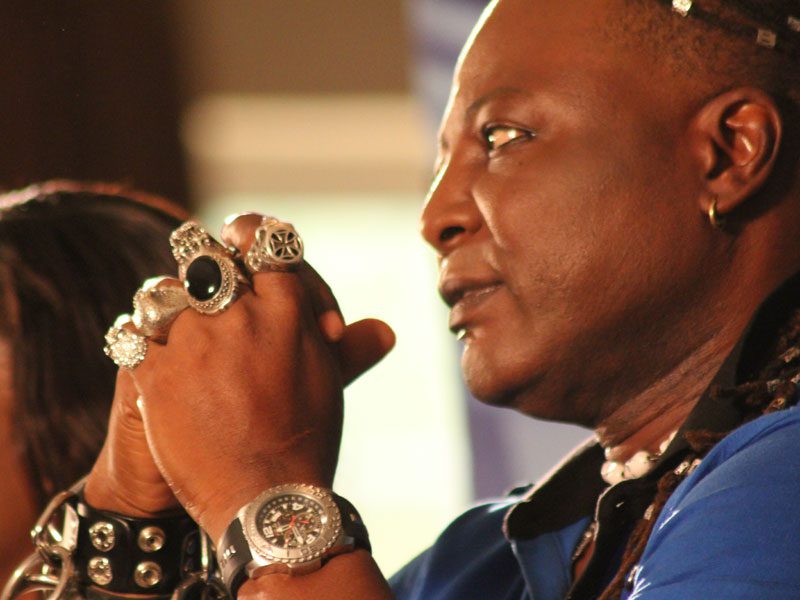Economic Issues
The Naira’s Recent Gains And The Road Ahead -By Ezinwanne Onwuka
The CBN deserves credit for its swift intervention. The naira’s performance in recent weeks, which has seen it jump from the worst-performing currency to the best-performing currency globally, has offered a sigh of relief to many Nigerians after about eight tumultuous months of a cost-of-living crisis partly occasioned by the free fall of the currency. Mr Cardoso has proved his finesse in economics in just eight months in office as CBN governor, ameliorating the damages wrought by the embattled Godwin Emefiele, the immediate ex-CBN governor.

The naira has made a remarkable recovery, gaining 34 per cent since mid-March after losing 43 per cent of its value against the US dollar in the first two and a half months of 2024. The turn-around is shocking, I must say. As of February when the naira–USD exchange rate hit ₦1,600 while the naira–GBP rate was over ₦2,000, I feared that the former rate would also breach the ₦2,000 mark by the second quarter of this year. Alas! The naira bounced back, reflecting the spirit of resilience the country is known for.
The exchange rate has been on a rollercoaster since Bola Tinubu’s administration unified it in June 2023. We have watched the naira trade at an all-time high of ₦1,932 to currently trading at ₦1,200 in the streets with the official exchange rate trailing closely behind. This progress is driven by recent steps taken by the Olayemi Cardoso-led Central Bank of Nigeria, CBN, such as the lifting of foreign exchange restrictions on 43 previously banned essential items, a walkback on dollar sales to Bureau De Change, BDC, agents, and a ban on cryptocurrency trading platforms. The CBN also raised borrowing rates by 400 basis points in February to 22.75 per cent, and by another 200 basis points to 24.75 per cent in March. Additionally, it cleared a backlog of overdue dollar-purchase agreements estimated at US$7 billion.
From the foregoing, the CBN’s intent on exploring every possible action to stabilise the forex market, narrow the gap between the official and parallel market rates, and ultimately reduce exchange rate volatility is glaring. These measures are really paying off. Penultimate week, the CBN sold US$10,000 to each authorised BDC at a rate of ₦1,101/US$1 to sell to Nigerians at a rate not exceeding 1.5 per cent above the purchase price. That is, the BDCs are expected to sell at ₦1,171. The rate is the strongest level at which the CBN has sold the dollar to BDCs since February, when it first offered them at ₦1,301/US$1. By the second sale, the bank reduced the allocation by 50 per cent and sold the USD at a rate of ₦1,251/US$1.
The CBN deserves credit for its swift intervention. The naira’s performance in recent weeks, which has seen it jump from the worst-performing currency to the best-performing currency globally, has offered a sigh of relief to many Nigerians after about eight tumultuous months of a cost-of-living crisis partly occasioned by the free fall of the currency. Mr Cardoso has proved his finesse in economics in just eight months in office as CBN governor, ameliorating the damages wrought by the embattled Godwin Emefiele, the immediate ex-CBN governor.
Nigerians hope this gain endures; we cannot afford to be lulled into a false sense of security. The recent uptick in the naira’s value is a window of opportunity for the Nigerian government to implement strategic interventions aimed at economic stability and growth. The measures already taken by the CBN are akin to administering pain medication – they address the symptom, not the underlying disease. Hence, the road to a truly stable naira remains long. The current reprieve should not mask the underlying vulnerabilities of the Nigerian economy.
The key to long-term stability lies in structural reforms, such as diversification. Diversifying the economy beyond oil is paramount. Our overdependence on oil exports makes the economy susceptible to fluctuations in global oil prices. A potential global economic slowdown or a dip in oil prices could quickly reverse the much-celebrated gains. It is time to give other sectors like agriculture and manufacturing, among others, a chance to shine. That way, a more robust, flexible, and durable economy will sprout.
Improving the ease of doing business in the country to attract both domestic and foreign investment is another way to sustain the strength of the naira. Measures such as less paperwork and fewer hoops to jump through, among various others will make Nigeria a more attractive place to do business. And more business means more jobs and more money flowing into the economy. Fortunately, we have a president who understands this and has, time and again, shown his commitment to making Nigeria “a destination of choice for local and foreign investments.” President Bola Tinubu believes he is not building a castle in the air because “we have taken the largest elephant out of the room with the removal of fuel subsidy, and multiple exchange rates are equally gone.”
And let’s not forget about reducing our reliance on imports and creating a vibrant export sector to improve the country’s balance of trade. Another essential aspect involves prudent fiscal management. That means being careful with how the government spends money and making sure we are not racking up huge debts. Plus, the CBN must continue to implement sound monetary policies to keep inflation in check and the exchange rate steady.
The official exchange rate of the naira to a US dollar stood at about ₦465.07/US$1 at the time Tinubu took over as Nigeria’s chief administrator in May last year. If we are willing to roll up our sleeves and get to work, the current progress will not be temporary flickers but a springboard for long-term economic prosperity.
—
Ezinwanne writes via ezinwanne.dominion@gmail.com.


















